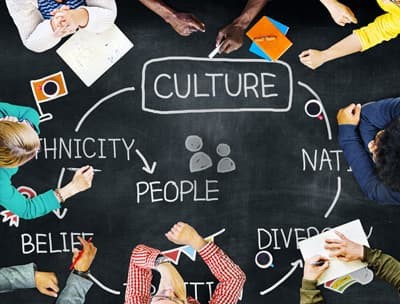"From time to time one has to see the world through someone else's eyes. Apparently it is then that the secret of the world and of man becomes visible."
("The Black Book", O. Pamuk)
What is my world when seen through foreign eyes?
Maria Fellner - 03.01.2020 @ 18:59
Seen through foreign eyes
by Jan Belov, Chris van den Nieuwendijk, HPS Buxtehude/Germany
"From time to time one has to see the world through someone else's eyes. Apparently it is then that the secret of the world and of man becomes visible." ("The Black Book", O. Pamuk)
Looking at my world through different eyes, you will see cultural differences despite a good integration and the increasing globalisation. An inconspicuous boy with a migrant background (and German roots), who is in between two worlds and does not really feel related to one of them. On the one hand, he was born in Germany and grew up under German influence, but still he is not capable of understanding every phrase and word, because he has never learned this vocabulary. Furthermore, the bilingual raising can be the reason for misunderstandings. On the other hand, the education and traditions of his parents left a strong mark and he sometimes feels homesick and has a connection with a familiar and at the same time very foreign world. To show some differences between the traditions, we would like to name German Christmas. Getting together with the family and sharing presents happens on the 06 December in Dutch families and on New Year’s Eve for Russian families. A big Advent calendar does not exist in this world, but he still gets one every year, thanks to the cultural 2 in 1 influence. Also eating habits can be very different. Having a cold meal for dinner is unimaginable for many cultures. Russians do not want to miss their beetroot soup, Dutch love to have nearly everything fried and thanks to the German influence, you start to miss the big selection of the best breads as soon as you leave the country.

Photo: https://www.college-contact.com/userfiles/ratgeber/kulturelle-vorbereitung.jpg
Translated to English by Jan Belov, HPS Buxtehude/Germany
Jan Belov, Chris van den Nieuwendijk 10.03.2020 @ 16:17
Dear Jan and Chris,
I really enjoyed reading your article. I like it how you compare the different influences of different countries on people, who are raised bilingual.
I think that there are also many good things about it. For example, if you travel to a different country, you might be able to understand people easier. Many people, who are raised bilingual, are able to learn new languages faster than people, who only speak one language.
But I also agree with you in the point of misunderstanding. It can be difficult, if you mix up the vocabulary or common phrases.
On the other hand, I think it is great to have the chance to experience not only one culture. You get to know many different traditions and can compare them to each other. You can decide which ones you want to join with your family and which you don't.
Johanna
Johanna Holaubek - 12.04.2020 @ 14:12